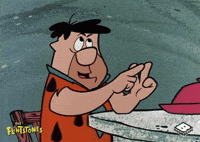I recently finished beta reading a novel where the viewpoint character had a big problem–one that negated whatever brilliance the plot, pacing, and other characters brought to the story.
What problem is large enough to do that?
The main character’s narration didn’t do anything to bring the character alive. At times, scenes even seemed to be narrated by a third party narrator rather than the main character.
Why is this such a problem? Because readers need to connect to the main character if you want them to keep reading (and of course you want them to keep reading 😉 ). Before readers can experience your exciting story or the plot twist on page 201, they need a character they can connect with so they know why those exciting events and plot twists matter.
If your characters feels like a disembodied voice describing events from far off, we have a problem.
Of course, no one consciously makes the decision to write a character that seems removed from the events of the story, so how do we make sure we aren’t doing that?
First, we need to make sure we have a strong character. They won’t seem real to readers if they aren’t real to the author. (READ HOW TO DO THAT HERE)
In this post, we will focus on how to go deep into the character’s viewpoint.
- Make Sure They React to Events in Real Time
This one may seem obvious, but this was one of the main problems with the aforementioned story I beta read.
The viewpoint character would be in an intense scene, but there wasn’t an emotional reaction from her. She didn’t say much and when she did say something it was to ask questions that clearly needed to be asked so the author could get the other characters to give certain information that would move the plot along.
The result was a robotic character and a feeling that we were no longer in the main character’s head, but being told the story by a third-party narrator.

Even if you’re writing a scene where the dialogue needs to take place mostly between characters other than the viewpoint character, there should still be some emotional reaction to what the others are saying.
Example:
Main Character is witnessing their best friend being told by their parents that they are getting a divorce ( I don’t know what parent would do this in front of a child’s friend, but it’s just an example 😀 )
Friend’s Mom tells Friend that they are getting a divorce. Main Character puts a hand over their mouth. No way this could be happening to Friend! They’ve been friends since kindergarten and now they are in High School. Their parents were always so nice to Main Character when they visited. How could they be getting a divorce?
Friend’s dad tells Friend that he will be moving out by the end of the week.
End of the week?! Main Character thinks, but Friend’s dad promised to take Friend and me on a camping trip this weekend. Friend has been looking forward to this all summer. That’s just adding salt to the wound.
Friend’s dad says he will be moving out of state and Friend has to decide which parent he will stay with.
Main Character feels their cheeks flush with anger. How could Friend’s dad make them decide something like that? Friend doesn’t get along well with their mom because she is so critical of him, but choosing his dad would mean moving away from the town he grew up in and all his friends.
It will mean moving away from me. The thought makes Main Character feel sick.
See how having the viewpoint character respond, even if it is only internally, immediately makes us feel like we are in their head?
This is probably the most basic, but most foundational tool to use to make a viewpoint seem real.
2. Use Speech Patterns
One way to make readers feel like they are in a character’s head is to use certain speech patterns. Yes, speech patterns are typically for dialogue, but they can be used for internal monologue too.
Think about the way your character speaks to themselves. Are they always questioning the motives of others? Are they always hard on themselves–constantly giving themselves an internal tongue lashing? Do their thoughts bounce all over the place, switching from one topic to another?

Spending some time making your character’s internal voice colorful will make their dialogue come alive as well. So if their thoughts are all over the place, their dialogue may be as well. They may change topics of conversation quickly or speak too fast or jump to interrupt other characters. If they are always hard on themselves, they may constantly apologize when it is unnecessary, or they may be as hard on others as they are themselves, leading them to criticize other characters.
3. Give Them a Catchphrase or Mantra
This is a simple but affective way to immediately make readers really feel that they are in a character’s head. This works especially well if you are juggling multiple points of view in a novel.
Simply give a character a catchphrase or mantra that they repeat to themselves in different situations. It may be said to other characters occasionally, but it is generally something they think to themselves (they may never say it out loud).
Joe Abercrombie does this so well in his novel The Blade Itself.
Logen Ninefingers, a Northman warrior, is always saying to himself, “You have to realistic about these things” when things don’t go well. Then there is the inquisitor, Sand Dan Glokta, always asking himself, “Why do I do this?” when he gets stuck with the most gruesome, unpleasant tasks.

As you can see, the phrases themselves aren’t anything superbly thought provoking or eloquent, but they do the job of bringing us into the character’s head.
I think it works so well because we all repeat things to ourselves, whether it is a mantra or a question. It could something like “Why does it always happen to me?” every time something bad happens. Or “better late than never,” or “better safe than sorry.”
4. Who They are is How They will View the World
We don’t view the world how it is, but how we are. We are all looking at things through a different pair of glasses that alters what we see. If you really want to make your fictional characters come alive, they should too.
What is your character’s background? Where did they grow up? What is their occupation? What are their skills and hobbies?
All of these things will work together to create the lenses through which your character sees the world.
If your character’s father was an angry drunk you yelled all the time, that character may be afraid men with bellowing voices or immediately hate or distrust men who speak loudly. If they grew up in a family that had little and was constantly bullied and snubbed by children from wealthy families, they may distrust the wealthy character they are forced to work with, perhaps even be cold toward them or take their anger out on them, even if they haven’t done anything to deserve the treatment.
If your character is a musician or singer, they will notice the timbre of a person’s voice. They will be bothered by the one character who always sings off key around the campfire. They will use metaphors that compare things to the instrument they play.

If they are a cook, they might experience taste more vividly than other characters. They may try to guess the ingrediencies in the dish they are eating, or may stop dead in their tracks to inhale the smell of food wafting from inn, not because they are hungry, but because their brain is hard at work deciphering the dishes being prepared.
If they sew, they will notice the fabric and stitching of the clothing worn by the other characters. They may wonder at the pattern and try to deconstruct the garment in their mind, possibly getting so distracted that they miss out on something in the conversation.
You get the idea.
We compare everything we experience to what we already know, so nothing makes a character seem more alive than one who thinks like a (fill in the blank with your character’s skill or occupation) and colors their inner monologue.
If you write a character who reacts in scene, has a unique voice, maybe has a catch phrase or mantra, and who hobbies and knowledge color the way they interact with the world, you will have a stunning character POV that immerses readers.
Add in this bonus tip, and readers will forget your character isn’t a real person. 😉
Bonus: Take out filter words that such as “I saw” or “I heard.” Instead, describe what it is that the character is seeing or hearing.
Instead of, “I saw a hooded man run down the alley,” say, “A hooded man ran down the alley.”
Instead of, “Sarah heard the train let out a shrill whistle,” write, “The train let out a shrill whistle.”
Saying that the character saw, heard, or smelled something adds a barrier between them and the reader. The story is more immersive without them.
Now get to writing a scene with deep POV! Until next time, Epic Dreamers. Keep dreaming!



















































